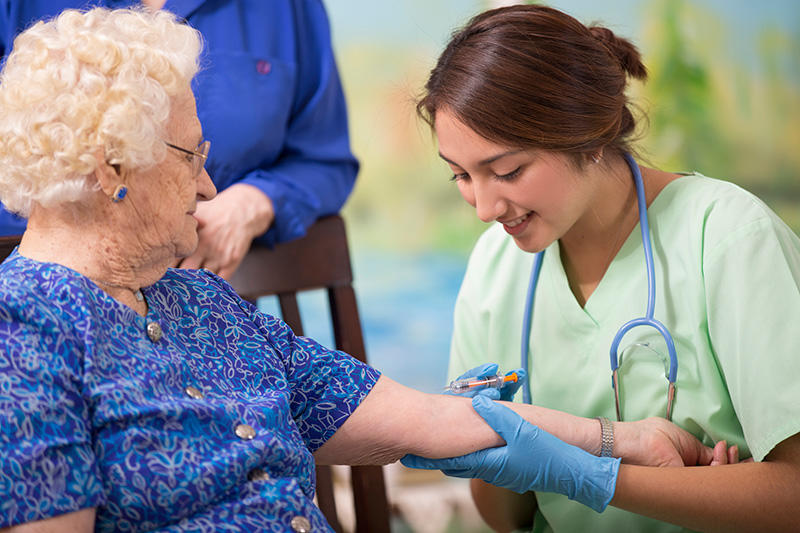Featured
Tags
Share

It’s said you never know where life will take you, and that’s just as true for nurses as it is for anyone. But as a nurse, moving from one state to another can have one complication: you may not be able to just start interviewing for jobs. Instead, you might have to apply for a nursing license from your new home state.
If you’re a nurse interested in moving, or just going where life takes you, Chamberlain Career Services Advisor Victoria Bennett offers the following advice on preparing to get a nursing license in another state.
It all starts with research
“The first thing to do would be to find out if the state you’re moving to is a Compact state or not,” says Bennett. “A Compact state is one which is a part of the National Council of State Boards of Nursing (NCSBN) Nurse Licensure Compact (NLC).” This is an initiative that was launched in 2000 to help expand the mobility of nurses. The NLC allows nurses to have one multistate license, with the ability to practice in both their home state and other compact states.
You can see the current list of the 24 NLC states here. And stay up to date on pending legislation for more states to join.
“If you’re moving to a non-compact state, your research is going to be a little more in-depth,” Bennett explains. “You will have to find out the state requirements for a nursing license in that state and apply for a license.”
To learn about the requirements, get in touch with the Board of Nursing for the state you’ll be moving to. You should also be aware that there will be some sort of payment required. Bennett adds that non-compact states may also require that you relinquish your nursing license from your current state.
“Depending on your reasons for moving, if the destination is up to you, part of your research should also focus on putting yourself in the best position for your career. Salary comparisons and opportunities for career advancement can vary among states and regions, so you’ll want to take those into consideration as well.”
Bennett recommends giving yourself a year – but no less than 6 months – to do the research and get the appropriate licensures before making your move.
Take advantage of available resources
Researching a career (and life) relocation can seem daunting, so Bennett advises checking out the following resources:
- NCSBN – For NLC information as well as answers to Frequently Asked Questions (FAQs)
- Bureau of Labor Statistics – To gain insight as to how your profession is performing in the locations you’re interested in. See specifically the Occupational Outlook Handbook
- Website for the State Board of Nursing for the state(s) you’re interested in
Specifically for pre-licensure students, Bennett suggests getting in touch with the following associations:
She also notes that travel nurse agencies can be useful in helping to determine where to go. These agencies work with healthcare organizations on recruitment and can offer valuable insight into organizations and locations.
By Ryan Segovich
More from Careers
Request More Information
To receive the Chamberlain University Program Guide, including associated career paths, please select a program of study.






